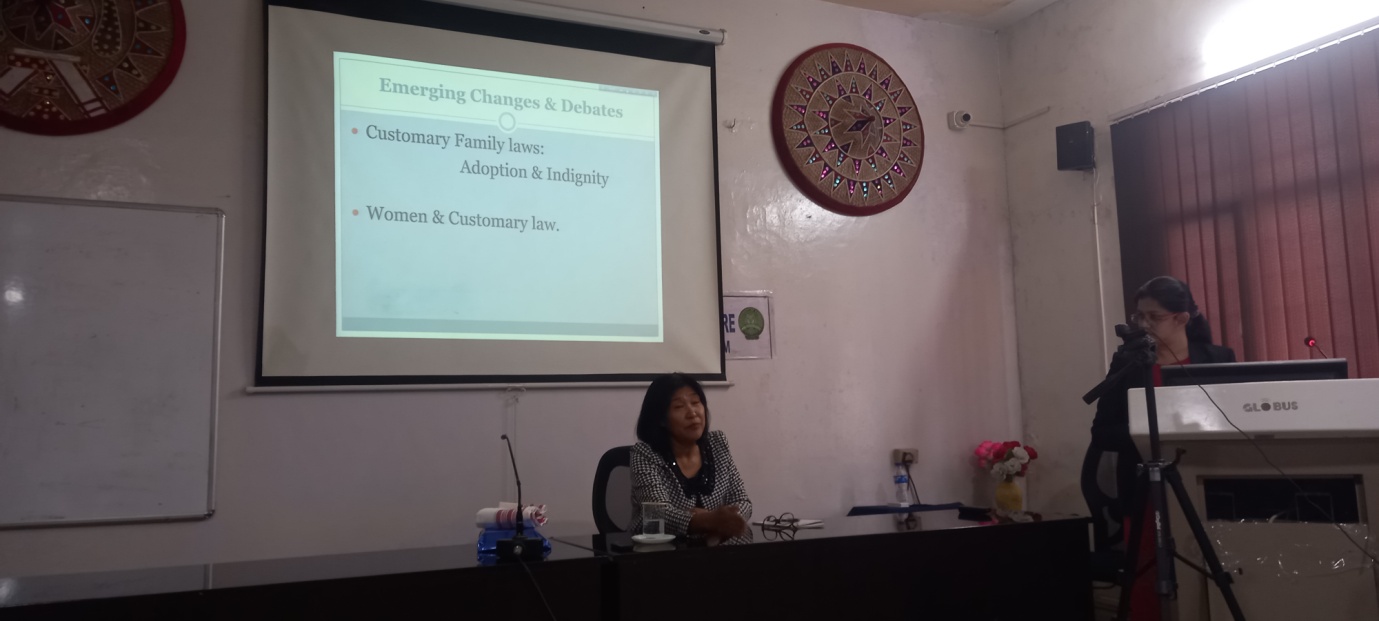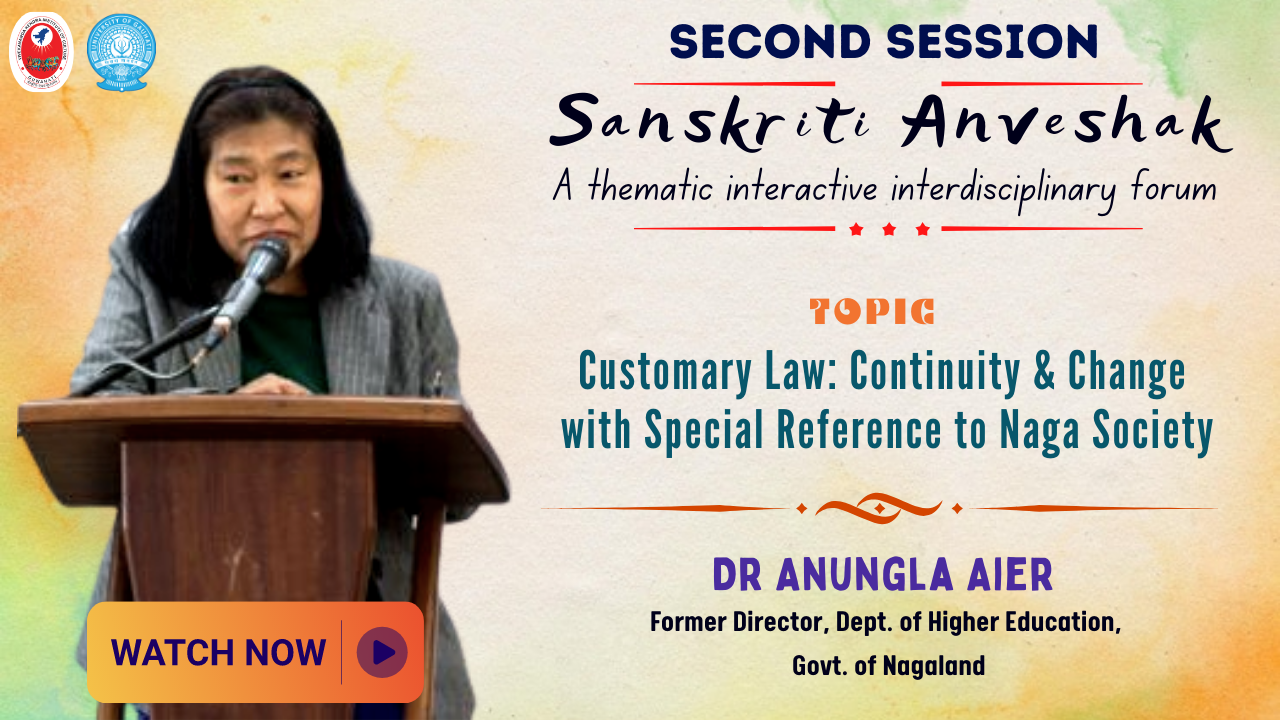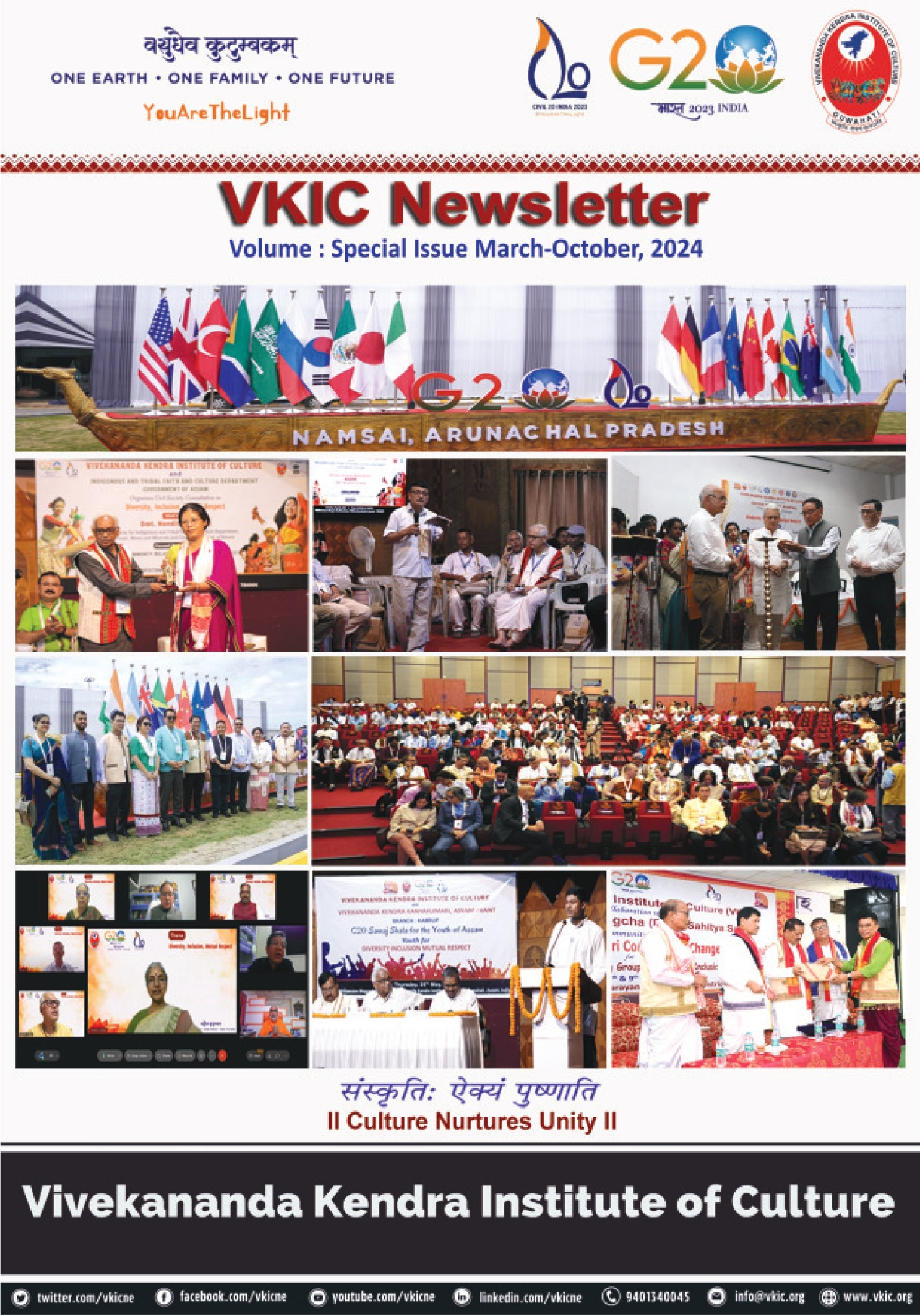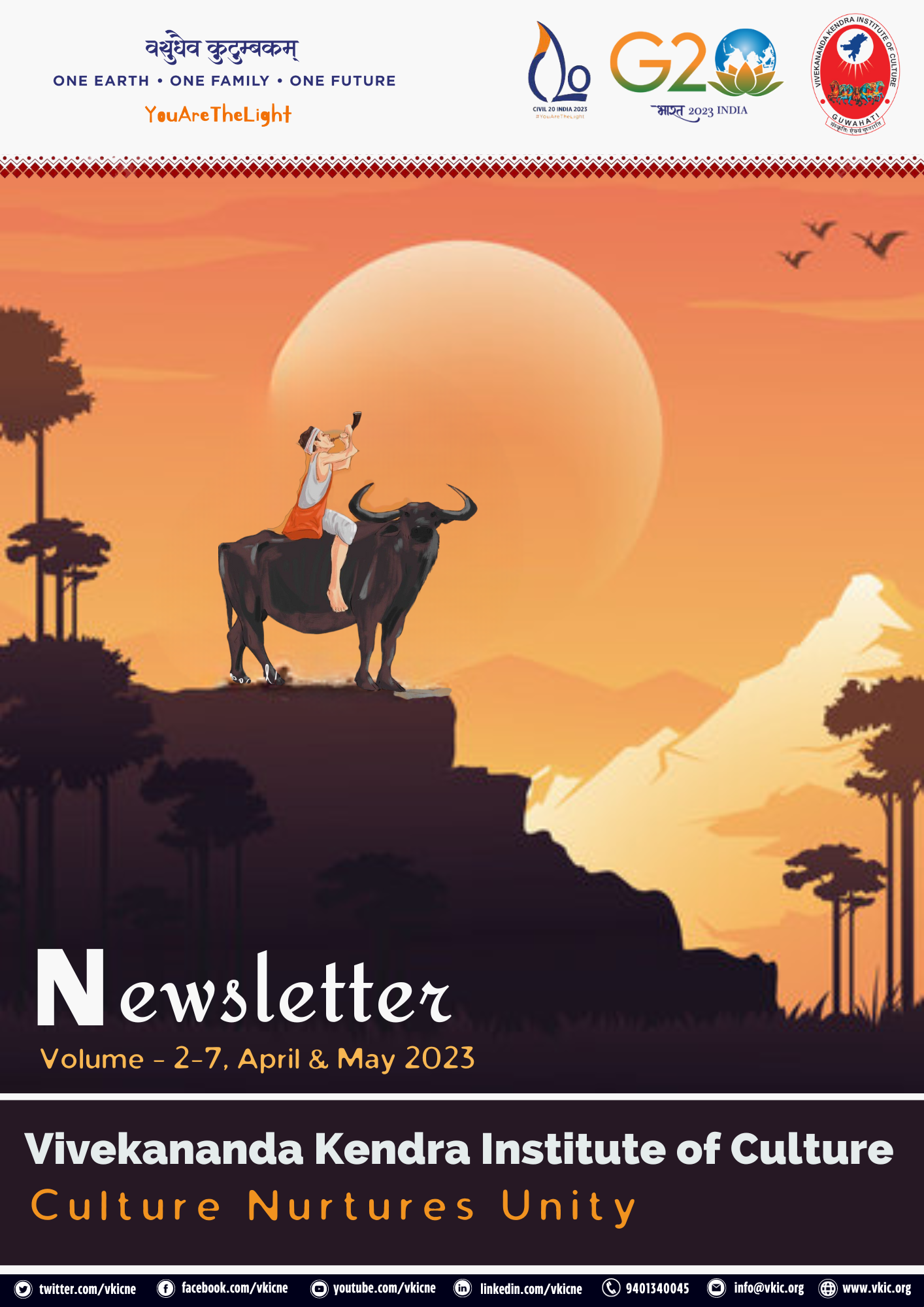Second Session of Sanskriti Aniveshak
Lecture on “Customary Law: Continuity and Change, with Special Reference to the Naga Society”held at Gauhati University
The thematic interactive interdisciplinary forum ‘Sanskriti Anveshak’ lecture series on the theme ‘Governance for Coexistence, Harmony and Progress – Traditions and Institutions of the Northeast India’ organized by Vivekananda Kendra Institute of Culture (VKIC) in collaboration with Gauhati University, the second in the series, was held on 27th February, 2023 at UGC- HRDC (Human Resource Development Centre), Gauhati University
The topicfor this time was “Customary Law: Continuity and Change With Special Reference to the Naga Society” and was delivered by Dr. Anungla Aier, a renowned anthropologist and Former Director, Dept. of Higher Education, Govt. of Nagaland.
Dr. Parimal Ch. Bhattacharjee, Director, Vivekananda Kendra Institute of Culture, while delivering his welcome address mentioned about the role of VKIC, through community research, in finding the commonalities and that binds the different communities of the North East region that lives cohesively. He also mentioned about the importance of ‘development through culture’ which is being pursued by the VKIC as one of its objective.
The host of the programme Ms. Barnali Chakraborty, Research Associate introduced the speaker and she was felicitated by the Director of VKIC.

Dr. Anungla Aier while speaking on the occasion dwelled on why customary law persists in the material life of the Naga People and why it is important till today. She said that due to the existence of customary laws, harmony and cohesion could be maintained, between the villages and among different communities across the state. According to her, the organization of the Naga society is based on the Morung system, on the existing clans and kinship which is the linking thread of customary institutions that keep up the strong bondage among people.
She asserted that traditional boundaries of the community and land rights are based on historically accepted and agreed customary practices. Even the mountains and hills got its name and the institution of customary practices is an indelible part of the traditional Naga Culture.
She further said that disputes arising within the village, neighbouring village regarding land or anything elseis resolved the conflict but they also may vary from village to village. She clarified further that every Naga village is headed by a hereditary chief, or the eldest male member or any individual having capability, assisted and represented by every clan which forms the village council court. One of the objectives of the traditional court is to resolve any dispute and restore communal cohesion and harmony.
 She further said that the Nagaland state which is protected by Article 371 (a) is witnessing some emerging changes which can be seen in the form of tussle between the customary laws and the Indian legal system. While narrating such scenario in the state, she rue that customary laws are inspired by the existing patriarchal society and this isnot only true for Naga society but it is visible in every community where the womenfolk are denied any inheritance of ancestral property.
She further said that the Nagaland state which is protected by Article 371 (a) is witnessing some emerging changes which can be seen in the form of tussle between the customary laws and the Indian legal system. While narrating such scenario in the state, she rue that customary laws are inspired by the existing patriarchal society and this isnot only true for Naga society but it is visible in every community where the womenfolk are denied any inheritance of ancestral property.
She emphasised that no recognition of women in public places in the ancient past was an exception as in those days warfare were rampant in the society where women could not participate but in modern days it make no sense. But it is a very good sign that things are taking shape as we can see many women are in fray for the election (Nagaland Legislative Assembly) which was never the case before.
She concluded by saying that one of the biggest hurdles women face is resistance in the customary institutions. She felt that continuation of customary law or customary institution will depend on how we adopt, modify as per the emerging modern scenario and how we interpret and apply as per the requirement of issues.
The deliberation was followed by an interactive session where the participants discussed their queries with the speaker.
The word of gratitude was offered by Dr.Rajib Handique, HoD, Dept. of History, Gauhati University and the session concluded with the Shanti path.


